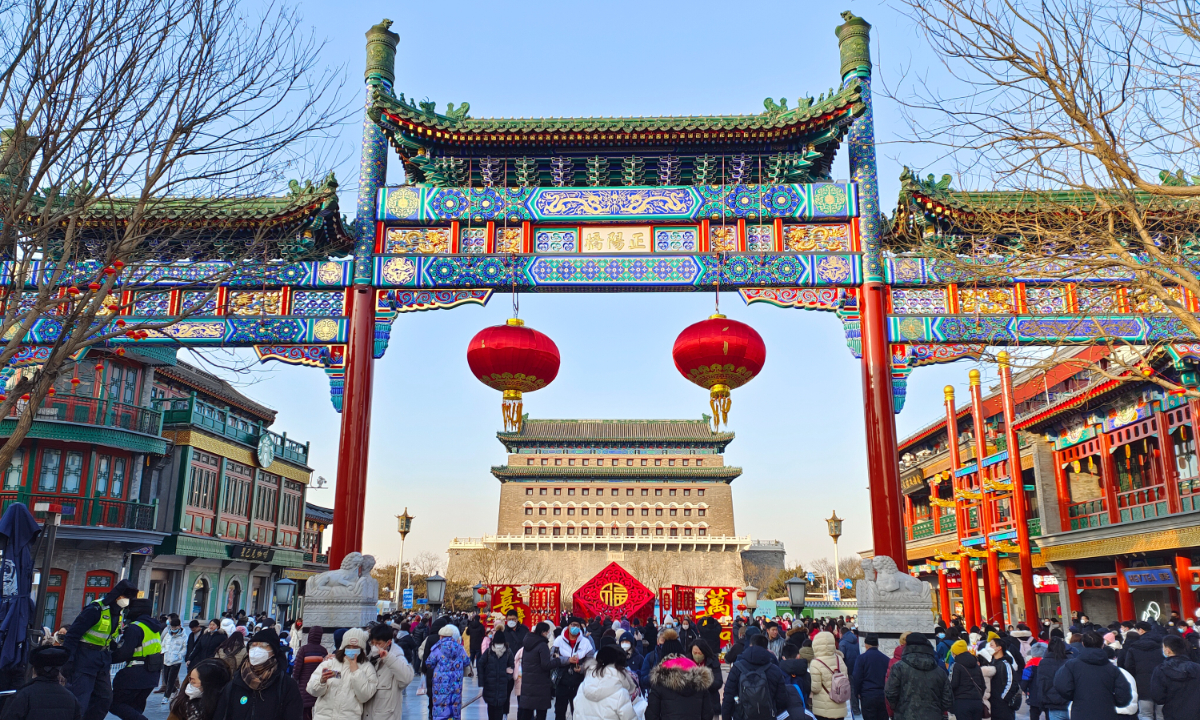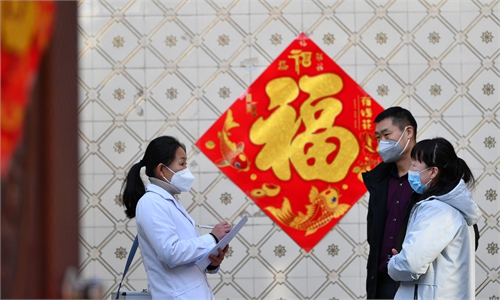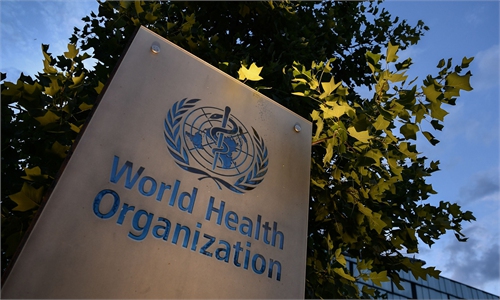COVID-19 infection in Beijing drawing to end; capital to investigate residents' serum antibody levels for future reference: Beijing CDC official

People enjoy the Spring Festival at Qianmen Street in Beijing on January 27, 2023. Photo: IC
An official from the Beijing Center for Disease Control and Prevention (Beijing CDC) said the capital's COVID-19 infection is drawing to a close, thanks to temporary immunity built during the infection peak. Whisking away the Chinese New Year travel rush's risk for the city, the official also said Beijing is set to conduct an investigation of its population's serum antibody levels during February and March, for reference for future COVID-19 control.
From January 23 to 29, patients with flu-like symptoms received by key Beijing hospitals fell 40.87 percent week-on-week and 84.53 percent year-on-year, Wang Quanyi, deputy head of Beijing's CDC, told the Beijing News on Tuesday.
He noted that Beijing took samples from 453 patients with flu-like symptoms, 23 of which were positive for novel coronavirus.
The official whisked away the risk of Chinese New Year travel on the capital. Wang said that temporary immunity was built among the population during the outbreak at the end of last year, so an outbreak is unlikely for at least another three months.
In an interview with the Global Times previously, Zeng Guang, former chief epidemiologist of the Chinese CDC, said that it is estimated that 80 percent of the capital's population was infected with COVID-19 during the recent exit wave, thus a robust hybrid immunity generated by natural infection and vaccines has already formed.
Beijing CDC's Wang also said that the capital is set to conduct serum antibody investigation for novel coronavirus during February and March this year. A total of roughly 5,000 people will be randomly chosen in all of Beijing's sub-districts, requiring information of their nucleic acid and vaccination status, to complete the investigation.
Wang said that as time passes, the level of antibodies will also drop, thus a dynamic evaluation will be needed in the future.
An expert from the Chinese CDC, who requested anonymity, told the Global Times on Tuesday that the serum antibody investigation should be conducted nationwide to get a full picture of infection among the country's population.
"Such an investigation will answer some important questions, for example, how many are asymptomatic, as well as the antibody levels of people inoculated with different vaccines. If the sample is big enough, it will also tell us the proportion of COVID-19 patients with severe symptoms and even the number of deaths," the expert said.
The expert said that immunity generated by natural infection will fade within five or six months, according to international data, but it will protect people from suffering from severe symptoms or death for a long time.
"This [serum antibody] is important for the country to prepare for any further outbreak. The next wave won't overwhelm the medical system, but it will help us better prepare for the next wave and possible other endemic to come," said the anonymous CDC expert.
Wang also said that Beijing is set to reinforce monitoring of variants of coronavirus in the near future, including checking inbound travelers and people within the city. As for people entering the country via the capital, Wang said the customs office will check those with COVID-like symptoms. If their CT value is lower than 32, their samples will be sent to the CDC for genetic sequencing.
Key Beijing hospitals will keep reporting patients with flu-like symptoms, and currently there are 39 hospitals conducting pathogenic detection. The data from hospitals can help authorities get a grip on infection numbers and how wide the infection is, so the relevant government bodies can respond, said Wang.
The anonymous CDC expert said that nationwide, the CDC is monitoring the activity of COVID-19 and mutations of the virus, and also pushing for vaccination, especially for the elderly with underlying diseases.



